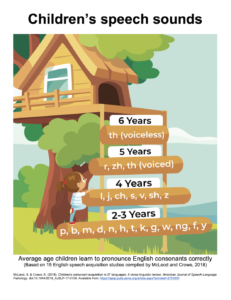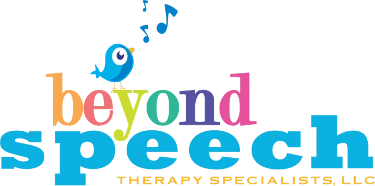And the 3 next steps to address any speech challenges
As parents, we are always on the lookout for behaviors and skills in our kiddos that meet development milestones. And when we notice things that don’t seem quite on track, it can feel confusing and very normal to have lots of “what now?” questions. When it comes to a possible speech delay, you may be wondering, “What should I do?”
With early talkers, around 2-3 years of age, you may notice that it’s difficult to understand them, they are struggling to produce certain sounds or they don’t have many words in general. At Beyond Speech, we do a lot of work with children at this foundational level to support the development of accurate and understandable speech and we are big proponents of early intervention.
If you’re looking for some information and guidance on first steps to take when you’ve noticed speech struggles in your young child, read on…
At 3 years of age a child should be able to:
- use about 1,000 words
- call themselves by name, call others by name
- use nouns, adjectives, and verbs in three- and four-word sentences
- form plurals
- ask questions
- tell a story, repeat a nursery rhyme, sing a song
- 3 year olds should be about 75% intelligible to an unfamiliar listener
- Some later developing sounds such as R, L and TH are common errors in 3 year olds
We like to reference this chart that shows the average age a child should be able to pronounce certain sounds.

A child’s ability to successfully produce these sounds, and subsequently whole words, is part of speech development and something speech pathologists look at when working with young children.
If by age 3 your child is unable to successfully make these sounds, doesn’t use at least 200 words, doesn’t ask for things by name or is hard to understand by those living with them, a speech delay may be the cause.
A speech delay can occur for different reasons and every child may experience it differently. It may simply be that your kiddo is on a different timetable than others and will catch up or it could be a bit more involved. This is where a trained speech language pathologist comes in. Their expertise lies in being able to determine exactly what is holding your child’s language development back.
Next Steps To Address A Speech Delay
Speak with you pediatrician
A great place to start when seeking support for a possible speech delay is to have a conversation with your pediatrician.
Let them know what your concerns are and what recommendations they would suggest. They will be able to help you take the next steps, whether that’s further evaluation or connecting with a therapist.
Your doctor is also a very valuable part of your child’s team if they begin to move forward to therapy or other assessments. Having them in the loop is a great idea!
Contact your local school district
By the age of 3, children are eligible to be evaluated for a speech delay by your local school district free of charge. An assessment would be performed by the school’s speech pathologist and recommendations made based on their findings.
Reach out to your school district’s main office to find out what steps you can take to begin this process.
Reach out to Beyond Speech
Speech and language therapy is one of the four therapy services we offer at Beyond Speech Therapy Specialist.
We offer private, in-home evaluations and therapy services that allow us to meet you and your child in a comfortable environment. Our speech pathologists will perform an evaluation with your child, all while in the home, and based on what they see will work with your family to devise the best plan.
In-home therapy supports generalization of skills across all environments and allows family members to be active participants in therapy sessions. We love how we are able to serve not only our children, but their families as well!

Your child’s success is a team effort! When it comes to speech and language challenges, it can be easy to feel overwhelmed and not sure of the next right step but we’re here to help and support you. We’d be happy to help you determine what therapies and services will best help your child with their speech delay.

